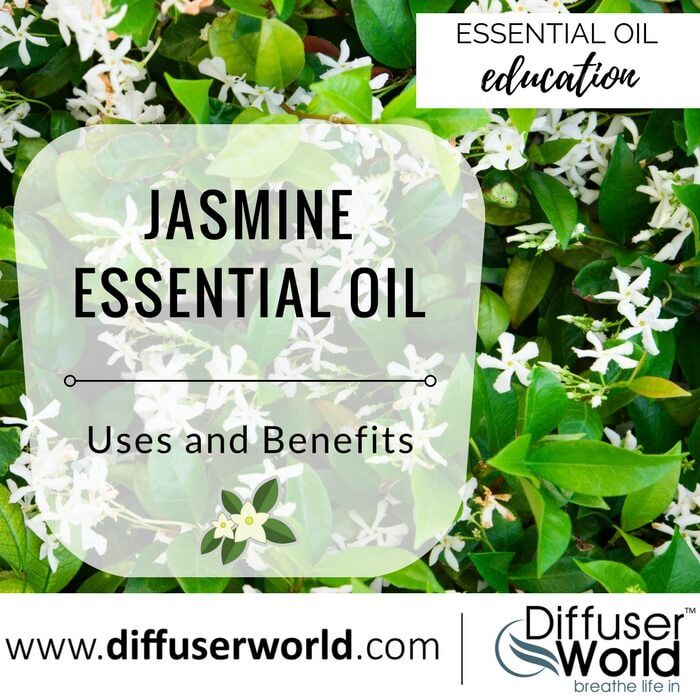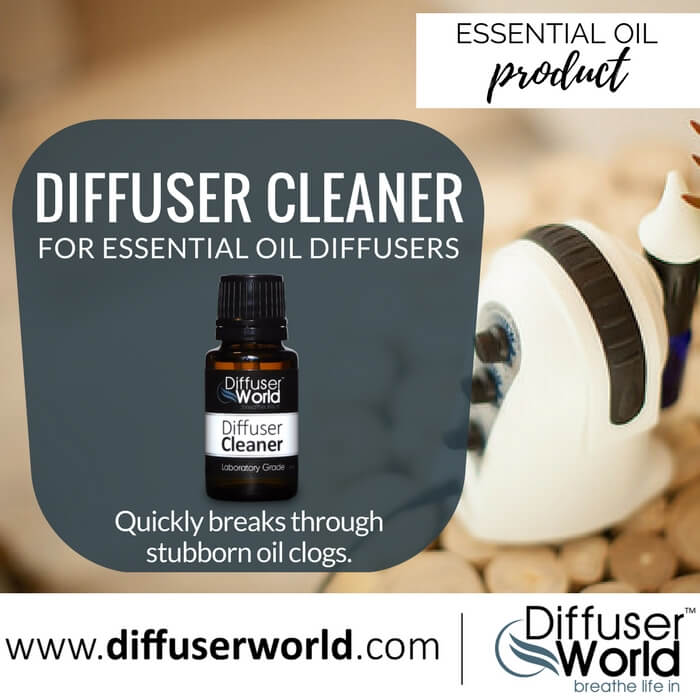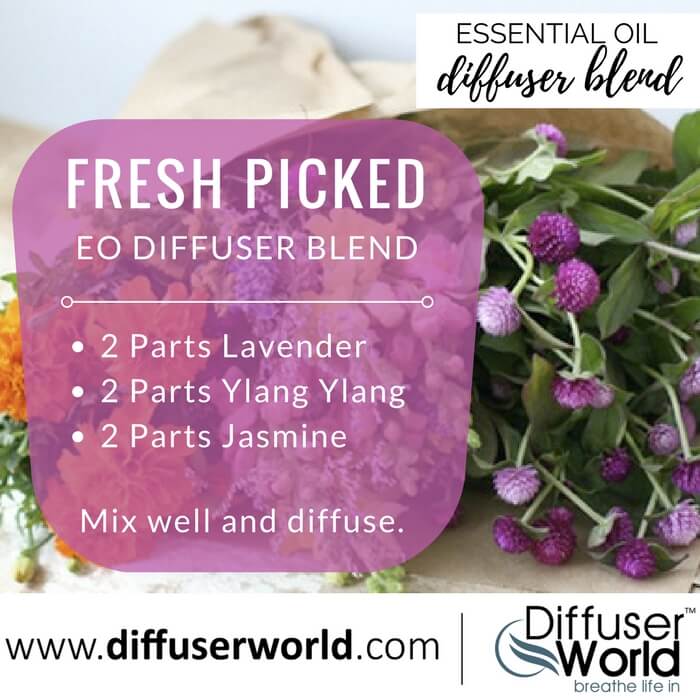Jasmine Essential Oil Uses Benefits

Jasmine essential oil, a type of oil derived from the jasmine flower, is a popular natural remedy for improving mood, balancing hormones, and overcoming stress. Jasmine essential oil has been used for hundreds of years in parts of Asia as a natural remedy for depression, anxiety, emotional stress, low libido, and insomnia.
Research suggests that jasmine essential oil, which has genus species name Jasminum officinale, works by positively influencing the nervous system. Through aromatherapy or by penetrating the skin, the oils from the jasmine flower have an effect on a number of biological factors — including heart rate, body temperature, stress response, alertness, blood pressure, and breathing.
Many people refer to jasmine oil as a natural aphrodisiac because it’s said to have a “seductive” scent that can increase sensuality. In fact, jasmine oil is sometimes nicknamed “queen of the night” — both because of the strong smell of jasmine flower at night and also because of its libido-boosting qualities.
What Is Jasmine Essential Oil?
- Traditionally, jasmine oil has been used in places like China to help the body detox and relieve respiratory and liver disorders. It’s also used to decrease pain associated with pregnancy and childbirth. Here are some of the most well-researched and loved benefits of jasmine oil today:
- Dealing with stress
- Reducing anxiety
- Fighting depression Increasing alertness
- Helping to fight low energy or chronic fatigue syndrome
- Reducing menopausal symptoms and working as a natural remedy for PMS and cramps
- Helping with sleep
- Acting as an aphrodisiac
- How can you use jasmine oil?
- It can either be inhaled through the nose or applied directly to the skin.
- It doesn’t need to be combined with a carrier oil and instead is recommended to be used undiluted for the best results.
- Diffuse in your home with an essential oil diffuser.
- Combine it with other lotions, moisturizing coconut oil, or other essential oils for many different household and body uses — like homemade massage oil, body scrubs, soaps, and candles, for example.
Jasmine Essential Oil Uses
1. Depression and Anxiety Relief
Many studies have found improvements in mood and sleep after using jasmine oil either as an aromatherapy treatment or topically on the skin, as well as it being a way to boost energy levels. Results demonstrate that jasmine oil has a stimulating/activating effect of the brain and also helps improve mood at the same time.
A study published in Natural Product Communications found that jasmine oil used on the skin over an eight-week period helped participants feel an improvement in their moods and a decrease in both physical and emotional signs of low energy.
2. Increase Arousal
Compared with a placebo, jasmine oil caused significant increases of physical signs of arousal — such as breathing rate, body temperature, blood oxygen saturation, and systolic and diastolic blood pressure — in a study done on healthy adult women.
Subjects in the jasmine oil group also rated themselves as more alert and more vigorous than subjects in the control group. The study results indicate that jasmine oil can increase autonomic arousal activity and help elevate mood at the same time.
3. Improve Immunity and Fight Infections
Jasmine oil contains active ingredients, such as benzaldehyde, benzoic acid, and benzyl benzoate. These naturally fight harmful bacteria and viruses within the body and on the skin, helping prevent sickness, irritation, fungus, and viral infections.
Inhaling jasmine oil, either directly or by infusing it in your home, can help clear mucus and bacteria within the nasal passages and respiratory symptom. Applying it to your skin can also reduce inflammation, redness, pain, and speed up time needed to heal wounds.
4. Help with Falling Sleep
Feel like you’re always tired but have trouble getting good sleep? Jasmine oil exhibits a calming effect that can act as a natural sedative and help you sleep better.
A 2005 study published in the European Journal of Applied Physiology found that jasmine tea odor had sedative effects on both autonomic nerve activity and mood states. Inhaling jasmine along with lavender helped reduce heart rate and bring on feelings of calm and relaxation, which are all important for dosing off and avoiding restless nights.
To diffuse jasmine oil in your home, combine several drops in a waterless diffuser along with other soothing oils, like lavender essential oil or frankincense essential oil.
5. Decrease Symptoms of Menopause
Using jasmine oil either as an aromatherapy treatment or applying it directly to the skin can help decrease emotional and physical symptoms of menopause and work as a natural remedy for menopause relief.
In a study published in the Journal of Evidence-Based Complementary and Alternative Medicine, when menopausal women applied jasmine oil to their skin over an eight-week period, they showed improvements in energy levels, mood and menopause-related symptoms, including hot flashes, pain, and depression, compared to women who weren’t using jasmine essential oil.
6. Prevent or Treat PMS Symptoms
Massaging jasmine essential oil onto your skin or inhaling it can help to reduce PMS symptoms, including headaches, stomach cramps, acne, and other skin flair-ups or restlessness.
7. Help with Post-Pregnancy Symptoms
Jasmine can help ease postpartum symptoms, including anxiety, depression, muscle pain, and low energy. It also helps balance hormones naturally and has even been used traditionally to increase production of breast milk. Additionally, applying jasmine essential oil to the skin can help decrease signs of stretch marks and prevent scarring.
8. Reduce Respiratory Infections
Jasmine oil can help open nasal passages and airways and reduce pain associated with colds, flus or other illnesses. To create a natural vapor rub, mix jasmine oil with a carrier oil like coconut oil and eucalyptus essential oil. Massage it onto your chest, temples, neck and anywhere else you experience pain.
9. Boost Concentration
Diffusing jasmine oil or rubbing it onto your skin can help wake you up and boost energy. Its active ingredients help increase heart rate, body temperature and brain activity that are needed for active learning and problem-solving. Try adding some to your bath wash and rubbing it onto your skin during a morning shower to help you ease into the day.
10. Promote Healthy Skin and Fight Blemishes
Jasmine oil is considered an antibiotic and antiviral — therefore, it can help calm skin irritation and inflammation. Try mixing jasmine oil into your lip balm, shower gel or body lotion to reduce blemishes, heal bruises fast, shaving irritation or pain associated with bug bites. Just make sure to first test your reaction to any essential oil by applying a small amount to a patch of skin in order to check for allergies.
11. Create a Calming or Invigorating Massage Oil
Depending on what other oil it’s used with, jasmine oil can either be uplifting or soothing. It can help increase alertness and arousal when needed but also has a relaxing and pain-reducing effect that makes it a perfect massage oil.
12. Serve as a Natural Mood-Lifting Perfume
Instead of using expensive store-bought perfumes, try dabbing jasmine oil onto your wrists and neck as a natural, chemical-free fragrance. Jasmine oil has a warm, flowery smell similar to many women’s perfumes. A little bit goes a long way, so only use one or two drops at first, and mix it with a carrier oil to tone down the strength of the smell if you’d like.
Jasmine Oil Research, Unique Compounds, and Studies
Jasmine flowers, a member of the family Oleaceae, have drawn the most attention for positively impacting hormones and nervous system activity.
A 2013 study published in the Journal of Health Research tested the mood-lifting effects of jasmine oil on 20 healthy volunteers and found an improvement in brainwave actives that help regulate mood. Jasmine oil was inhaled by all the study participants, and the central nervous system function and mood responses were tested. Participants had electrodes placed on their heads and also filled out personal questionnaires.
Compared to the electrode and test results prior to inhaling jasmine oil, the results after using jasmine oil showed a significant improvement in cognitive-emotional responses. Researchers observed improved levels of activity in beta wave power in the anterior center and the left posterior regions of the brain, which help control emotions and stress responses. Participants reported feeling an increase in positive thoughts and feelings — including a reduction in stress but a renewed feeling of being more active, awake and romantic.
Other studies show that jasmine oil is among a group of essential oils that help balance hormones levels by acting as phytoestrogens, plant constituents with a phenolic structure similar to estrogen. This gives therapeutic-grade oils, including jasmine oil, the ability to help correct menopause, PMS and other hormone-related issues.
For example, after testing women for 11 common symptoms related to hormone fluctuations — including hot flashes (vasomotor), insomnia, nervousness, weakness, and headaches — researchers found that aromatherapy and massage with phytoestrogen oils helped decrease symptoms without causing any negative side effects.
Additionally, jasmine oil is believed to have antiviral, antibiotic and antifungal properties that make it effective for boosting immunity and fighting illness. In fact, jasmine oil has been used as a folk medicine treatment for fighting hepatitis, various internal infections, plus respiratory and skin disorders for hundreds of years in Thailand, China and other Asian countries. Phytochemical studies show that jasmine oil’s secoiridoid glycosides are the oil’s primary active ingredients that fight harmful cells and increase immune function.
DIY Recipe for Jasmine Essential Oil
In order to get the most results from jasmine essential oil, you need to use a high-quality, “therapeutic” grade oil. Synthetic jasmine oil is often sold for much lower prices than true “absolute essence” jasmine oil because real jasmine oil is expensive to produce.
Jasmine oil flowers are very small and only produce tiny amounts of oil, so it costs manufacturers thousands of dollars just to extract one pound of the flower’s pure oil. Therefore, it’s important to always carefully check the ingredients in the oil; make sure the genus species name is listed as Jasminum Officinale.
Although jasmine oil might be one of the more costly essential oils on the market, it has a ton of uses and won’t go to waste. Just two to three drops also make a big impact, so a small bottle will last a very long time.
Jasmine oil blends well with many other oils to either promote an awakened state or help with relaxation. For an uplifting scent, try using jasmine oil with citrus oils. For its aphrodisiac effects, combine jasmine oil with rose essential oil, sandalwood essential oil, and ylang-ylang essential oil. And as a sleep aid and relaxant, lavender and frankincense make good additions to jasmine oil since all act as mild sedatives and promote a reduction in pain and anxiety.
To make a warming, homemade, chemical-free fragrance using jasmine oil, try the following recipe:
Homemade Jasmine Oil Perfume
Ingredients:
30 drops jasmine essential oil
5 drops vanilla essential oil
5 drops lavender essential oil
5 drops sweet orange essential oil
2 tablespoons vodka
1 tablespoon orange blossom water (or distilled water)
Directions:
Mix the essential oil blend with the vodka in a glass mason jar or bottle, and leave it to sit on a countertop for two days. Keep it covered and somewhere that’s room temperature and away from the sun.
Add the orange blossom water or distilled water, and stir together. Add the mixture to an old perfume spray bottle or regular aluminum spray bottle. Keep the mix somewhere around room temperature, and use on your skin, clothes, sheets, rugs, etc.
Jasmine Essential Oil Side Effects
Jasmine is generally considered safe and non-irritating, but there’s always a risk for allergies or irritations occurring whenever you use essential oils. Especially if you’re new to using essential oils or have sensitive skin, make sure to start with a small amount and try diluting it with carrier oils.
Jasmine has an intense aroma that’s very flowery, so some people prefer to mix it with other oils to prevent it from becoming overpowering. In a small group of people, jasmine oil might cause headaches, skin reactions or nausea due to its strength. It can always be toned down by combining it with coconut, almond or jojoba oil and avoiding direct contact with the skin.
Although it’s been used in pregnant women and new moms for centuries, you may also want to speak with your doctor before using essential oils if you’re pregnant or experiencing hormone problems. Jasmine essential oil has an effect on hormones due to its phytoestrogen effects, so it’s always smart to air on the side of caution.
Source: https://draxe.com/jasmine-oil/
Editor’s Note/Disclaimer: The information in this article is not a substitute for professional medical advice, diagnosis, or treatment. Always seek the advice of a physician or other qualified health provider with any questions you may have regarding a medical condition and before undertaking any diet, supplement, fitness, or other health programs. Diffuser World and the ownership of Diffuser World will make no specific medical claim or provide any medical advice. Articles contributed to this platform may be provided by third parties and do not necessarily represent the opinions or beliefs of any Diffuser World representative or the ownership of Diffuser World. Please seek out a medical professional or veterinary professional regarding any questions you may have about the use of any products sold by Diffuser World.





